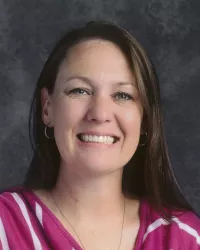Before I started this experience with the EAD Taskforce, I thought it was a far-fetched notion to incorporate American democracy and civics education into the 6th grade Social Studies/World History curriculum, which is what I teach. Using the content and subject matter of the curriculum, the only option I ever saw to incorporate Civic standards in my teaching was to compare our government and civic responsibilities today to those of the ancient civilizations students are learning. But through my experience with the EAD Taskforce, I learned that I could do much more than comparing these two things, that the impact of the journey that the students take into exploring these ancient civilizations can be through the lens of civics. And that this would create a better foundation for students to become more responsible citizens and will understand their role in our democracy today in a more natural form.
The first lesson I recently finished with my sixth graders that incorporated civics was comparing the Code of Hammurabi to School Rules/State Laws. I’ve taught this lesson every year, but through my experience and what I learned with the EAD task force, I elaborated on this lesson further and incorporated civics and American democracy. At first, I was a little nervous that this lesson wouldn’t be as “fun” as it had been. My students always liked this lesson because of how harsh and extreme some of these laws are by today’s standards. However, I was pleasantly surprised at how my students’ engagement took shape on its own. After the initial lesson, the class explored how Hammurabi’s Code covered every aspect of life during the Babylonian Empire. Students questioned at first if all laws covered every part of today’s “life.” Before I could direct them to the Arizona Constitution to find their answer, their discussion naturally explored it on their own, talking about the laws they know and how they affect their decisions and lives. Once they looked through the Constitution, the students discussed how they saw many aspects of daily life in many of the Articles. They again created their discussion on how many of their rights as citizens are shaped by these laws and the consequences that follow. This became an ideal “inquiry-based” lesson where they asked if they could continue their research in their groups on the harshness of punishments and how that shapes their decisions. After the lesson, students were to write a paragraph stating if harsh punishments are necessary for a safe society. Well, the paragraphs were not written. Instead, they could debate their views with others in the classroom and share their opinions without fear of being judged (as one of my students commented when we did our “wrap-up”).
All the aspects of my lesson plan I felt I would have had to model with the students through direct instruction to achieve the objective seemed to naturally appear as students progressed through a lesson. It was fantastic to see this happen in my classroom, to watch them connect with something they know or are familiar with and apply it to something new but similar. As teachers, we always want to build on their previous knowledge or build that foundation for them if it is lacking or missing. Allowing students to explore this content with the premise that they will be using it to connect to the rights and duties of being a part of something more significant is the step that was needed to help my sixth graders explore more in-depth the curriculum in which I need to teach. I am eagerly awaiting my next lesson because I am sure I will not be disappointed!
